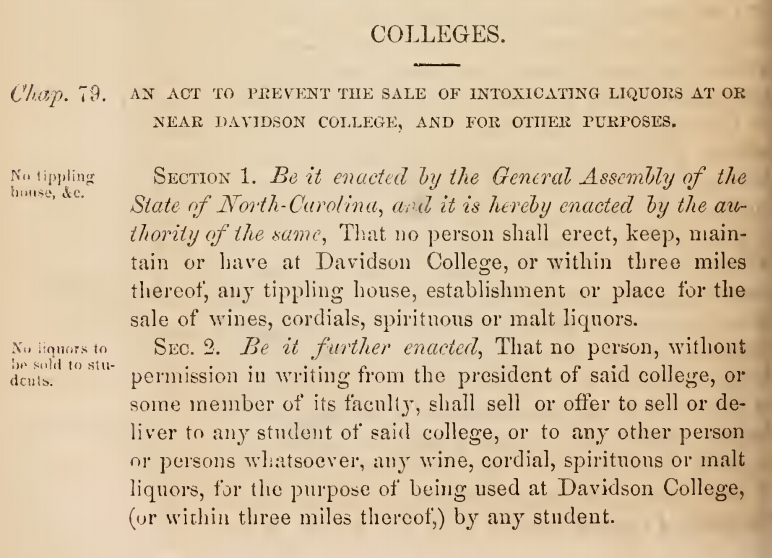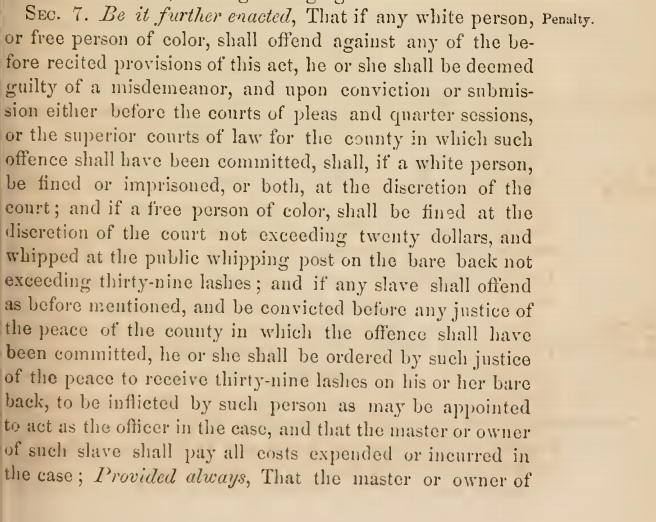This text is part of the Teaching Hard History Text Library and aligns with Key Concept 5.



COLLEGES.
Chap. 79.AN ACT TO PREVENT THE SALE OF INTOXICATING LIQUORS AT OR NEAR DAVIDSON COLLEGE, AND FOR OTHER PURPOSES.
No tippling house & e.
SECTION 1. Be it enacted by the General Assembly of the State of North-Carolina, and it is hereby enacted by the authority of the same, That no person shall erect, keep, maintain or have at Davidson College, or within three miles thereof, any tippling house, establishment or place for the sale of wines, cordials, spirituous or malt liquors.
No liquors to be sold to students.
SEC. 2. Be it further enacted, That no person, without permission in writing from the president of said college, or some member of its faculty, shall sell or offer to sell or deliver to any student of said college, or to any other person or persons whatsoever, any wine, cordial, spirituous or malt liquors, for the purpose of being used at Davidson College, (or within three miles thereof,) by any student.
SEC. 7. Be it further enacted, That if any white person, or free person of color, shall offend against any of the before recited provisions of this act, he or she shall be deemed guilty of a misdemeanor, and upon conviction or submission either before the courts of pleas and quarter sessions, or the superior courts of law for the county in which such offence shall have been committed, shall, if a white person, be fined or imprisoned, or both, at the discretion of the court; and if a free person of color, shall be fined at the discretion of the court not exceeding twenty dollars, and whipped at the public whipping post on the bare back not exceeding thirty-nine lashes; and if any slave shall offend as before mentioned, and be convicted before any justice of the peace of the county in which the offence shall have been committed, he or she shall be ordered by such justice of the peace to receive thirty-nine lashes on his or her bare back, to be inflicted by such person as may be appointed to act as the officer in the case, and that the master or owner of such slave shall pay all costs expended or incurred in the case; Provided always, That the master or owner of such slave shall have the right to appeal from the decision of the justice of the peace to the county or superior court of the county in which the offence has been committed.